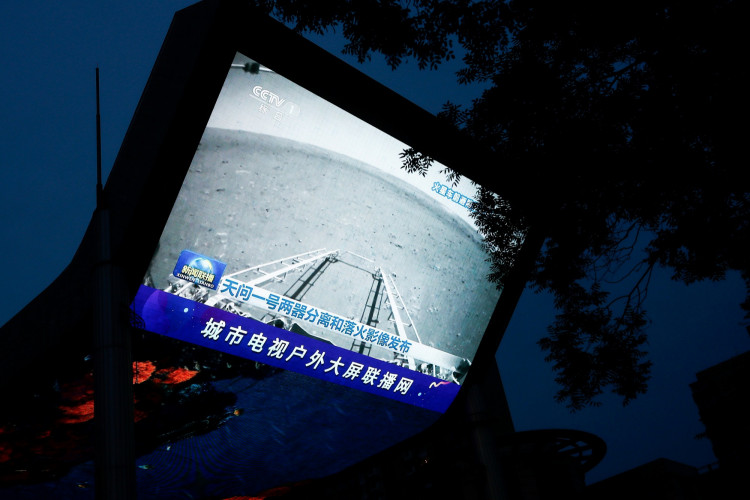The Zhurong Mars rover went into hibernation in May 2022 to allow it to survive the Martian winter's low temperatures, dust storms, and sand storms. Unfortunately, something appears to have gone awry.
According to unnamed sources, teams on Earth have yet to receive a signal from the rover following its hibernation. Although it is unclear what the problem is, the source stated that "sandstorms have seriously weakened Zhurong's capacity to use its solar panels to generate power."
The Tianwen 1 orbiter has also stopped responding, which makes matters worse. Before acting as a relay for the rover's communications, the orbiter first explored potential landing sites for Zhurong. Since then, the Tianwen 1 orbiter has been conducting research on its own, including mapping and surveying the Red Planet.
"A Beijing-based source said ground control had encountered difficulty when downloading the latest data from the orbiting probe, which is equipped with two cameras," South China Morning Post wrote.
Amateur radio operators have even noted that the Tianwen 1 ground stations appear to have stopped attempting to communicate with the orbiter.
Tianwen 1 is China's first self-sustaining interplanetary mission. The probe, a hybrid orbiter, lander, and rover, launched from Earth on July 23, 2020, in the midst of the COVID-19 pandemic.
Tianwen 1 successfully entered orbit around Mars in February 2021 after traveling 292 million miles from Earth.
Two other major missions, the NASA Perseverance rover and the Hope satellite from the United Arab Emirates, also arrived at Mars days before Tianwen 1. All three launched within a window of opportunity when spacecraft launched from Earth would go to Mars faster and more effectively. However, there will be a lot for all three missions to do on Mars.
Various satellite missions, including the Mars Reconnaissance Orbiter, Mars Express from the European Space Agency, and several Mars rovers from NASA, may have discovered signs of water on or beneath the surface of the planet. However, the Zhurong rover and the Tianwen 1 orbiter will both employ radar technology to look for even more proof of water pockets on Mars.
Tianwen-1, like many space explorations, has a philosophical component. The term "Tianwen," which is derived from the name of a well-known poem by one of the greatest poets of ancient China, Qu Yuan, means "questions to heaven," according to the team that developed the probe.
The problems with Zhurong and Tianwen 1 have not yet been addressed by the Chinese space agency.






